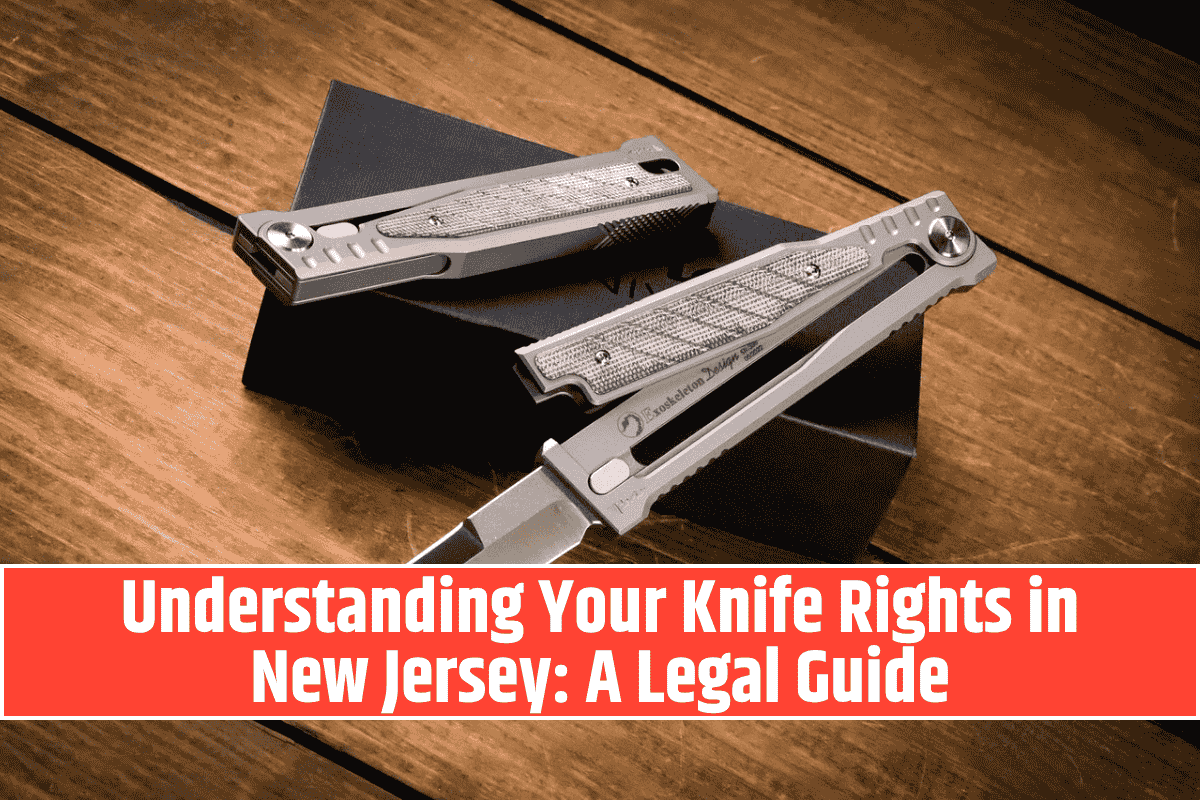Many people in New Jersey own and use knives for daily tasks, work, or hobbies. But did you know that New Jersey has some of the strictest knife laws in the United States? Knowing these rules is very important to avoid legal trouble.
This guide breaks down everything you need to know in simple, clear English. It will help you understand which knives are legal, how you can carry them, where you can’t take them, and what happens if you break the law.
What Types of Knives Are Legal in New Jersey?
New Jersey allows people to own and use several types of knives that are considered useful and not dangerous. These include:
Kitchen knives – the ones you use for cooking at home
Pocket knives – usually allowed if the blade is under 5 inches
Utility knives – used for work or household chores
These knives are legal as long as you don’t plan to use them to harm someone.
What Knives Are Illegal in New Jersey?
Some knives are banned completely because they are seen as dangerous or more likely to be used as weapons. These include:
Switchblade knives – blades that pop out automatically
Gravity knives – blades that fall open by force of gravity
Daggers and dirks – sharp-pointed knives made to stab
Ballistic knives – blades that shoot out
Stiletto knives – especially if carried with the intent to harm someone
Having any of these knives can get you into serious legal trouble.
Can You Carry a Knife in Public?
Open Carry
New Jersey does not clearly say whether you can openly carry a knife. But if you are carrying any knife for a dangerous reason or in a place where knives are not allowed, you can be charged with a crime—even if the knife is visible.
Concealed Carry
Hiding a knife on your body or in your bag is allowed only if you are not planning to use it for any illegal reason. If the police believe you are carrying it to harm someone or commit a crime, you can be arrested.
Places Where Knives Are Not Allowed
Even if your knife is legal, you cannot carry it everywhere. Some places where knives are strictly banned include:
Schools and colleges
Government offices
Public transportation areas
Airports
Stadiums, theatres, and other public event spaces
If you take a knife to these places, you could face fines, arrest, or worse.
Exceptions for Police and Military
People who work in law enforcement or are part of the military usually don’t have to follow the same rules as everyone else.
They can carry certain knives even in places or situations where regular citizens cannot. But this applies only when they are doing their job or have permission from their department.
What Happens If You Break Knife Laws?
If you are caught breaking New Jersey’s knife laws, you could face:
Heavy fines
Time in jail
A criminal record that could affect your job or future
The seriousness of the punishment depends on what kind of knife you had, why you had it, and where you were carrying it. For example, carrying a switchblade near a school can get you a harsher punishment than carrying a regular pocket knife in the park.
Knife laws in New Jersey are not simple. Even if your knife is legal, how and where you carry it matters a lot. You should always carry knives only for work, cooking, or other legal purposes—and never bring them to restricted places.
Knowing these laws can save you from big legal problems. If you’re unsure whether a knife is legal or if you’re allowed to carry it somewhere, it’s always best to speak to a lawyer or check the most recent state laws online.












